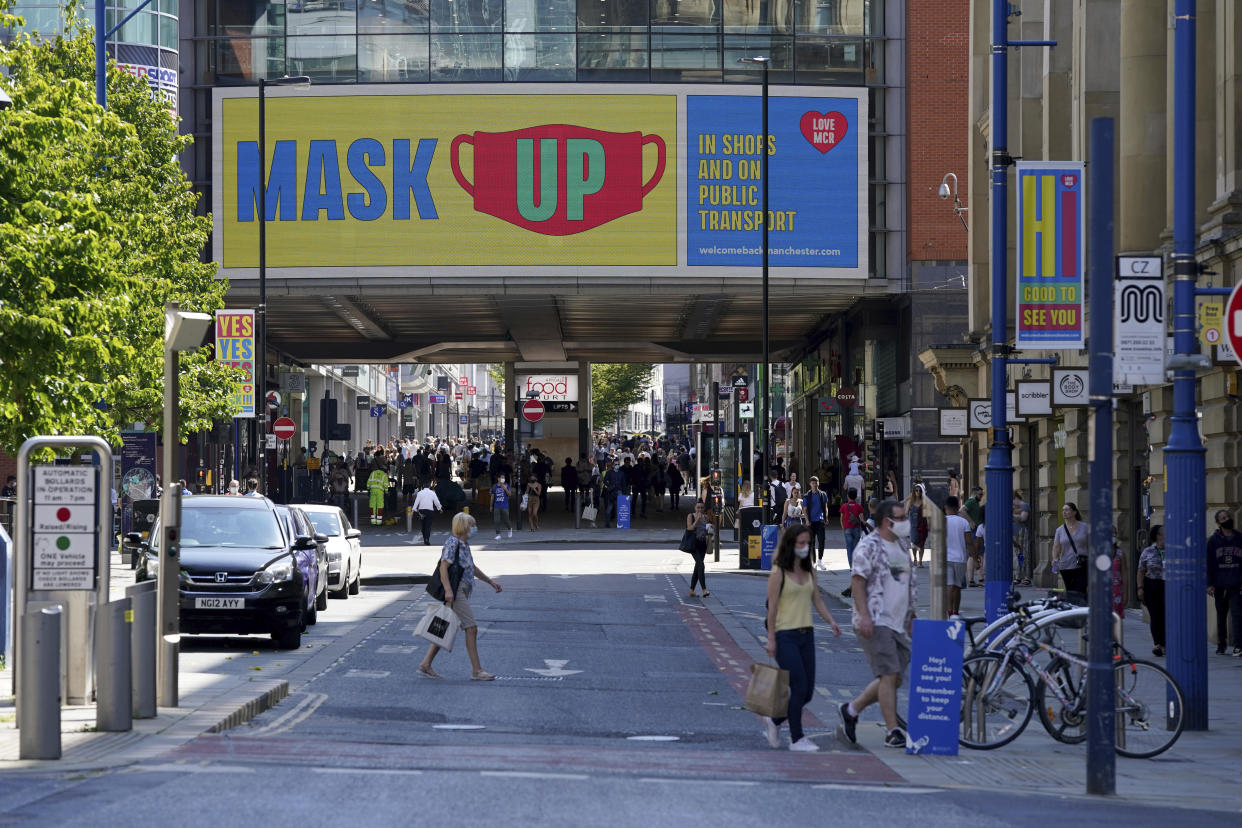People in northern England can meet in hotels but not in their own homes due to lockdown legal loophole

Laws enforcing lockdown restrictions in areas of the North of England have come into force – but there is some confusion about the new rules.
The Health Protection (Coronavirus, Restrictions on Gatherings) (North of England) Regulations 2020 were finally published on Tuesday afternoon, and will affect residents in areas including Manchester, parts of east Lancashire and West Yorkshire.
However, there appear to be legal loopholes within the rules that mean people can meet in hotels – but not in their own homes.
Hotels – along with hostels, campsites, caravan parks, members clubs, boarding houses and bed and breakfast accommodations – are not regarded as “private dwellings” and are therefore permitted as places to meet.

As a result, the means that it will be illegal for people from separate households to have sex in homes – but they will be able to pay for a hotel room.
Critics have branded the laws the resurgence of the so-called "lockdown sex ban”, which was coined after the government introduced a change of the law at the start of June that banned two people from different households across the whole of England from gathering in a private place during lockdown.
Here, finally, 5 days after the North of England lockdown was announced, are the legal regulations which underpin it.
They come into force tomorrow 5 August (no time! So 12:01am I guess) and do not (cannot) apply to anything which happened before thathttps://t.co/6ZazKlMz1m pic.twitter.com/dZRL33v2PJ— Adam Wagner (@AdamWagner1) August 4, 2020
While the ban on people meeting in homes for sex is enforced, meeting up to 30 people in a public place is permitted.
Lockdown rules for northern England now also prohibit gathering in gardens, as these are deemed private dwellings.
Those in the protected areas are also prohibited from visiting private dwellings outside the areas under the guidelines.
Commenting on the rule, legal expert Adam Wagner said: “How on earth this would be enforced is... interesting question.”
He added: “Crazy times where the criminal law is this intrusive on private rights.”
Watch video below
The publication of the rules comes several days after they were introduced following a spike in coronavirus cases.
Officials refused to comment when asked why there had been a delay in introducing the laws and on what legal basis they had been enforced for the first five days of the measures.
However, Wagner, commenting on the legislation, said: "They come into force and do not (cannot) apply to anything which happened before that.”
The legislation imposes restrictions on metropolitan, city and borough council areas in: Bolton, Bury, Manchester, Oldham, Rochdale, Salford, Stockport, Tameside, Trafford, Wigan, Burnley, Hyndburn, Pendle, Rossendale, Calderdale and Kirklees.

Anyone found flouting the rules could be fined £100 up to a maximum of £3,200 for repeat offences.
There are exemptions to the rules, including: for those who have formed a support bubble and have become "linked" households; for people sharing childcare duties; in order to go to work; to attend a birth at the mother's request; to visit a dying loved one; to fulfil a legal obligation; to move house; to care for a vulnerable person; or to escape injury, illness or risk of harm.
The restrictions must be reviewed once every 14 days and the first review must take place by 19 August.
But they could be in place for up to six months if not scrapped by the government.
Coronavirus: what happened today
Click here to sign up to the latest news and information with our daily Catch-up newsletter

 Yahoo News
Yahoo News 


